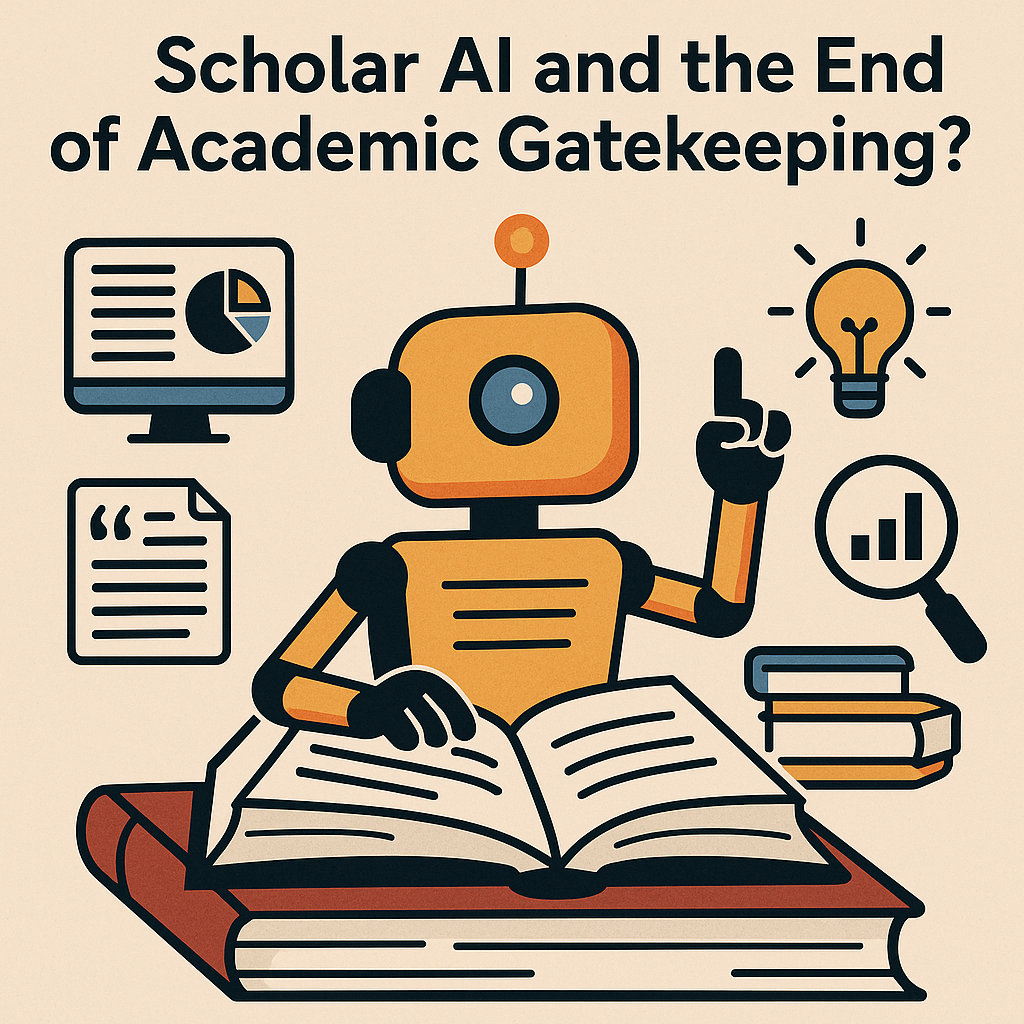
For centuries, academia has been a fortress. Knowledge was controlled by publishers, filtered by professors, and accessed mainly through expensive journals. But the rise of Scholar AI, academic AI tools, and AI research assistants is starting to dismantle that gatekeeping in real time.
From Ivory Towers to Open Algorithms
Where scholars once spent months gathering sources, today an AI research tool can scan thousands of papers, summarize them instantly, and generate a near-complete literature review AI draft. Add a scientific citation generator, and suddenly the hardest parts of writing an AI paper become trivial.
For students without access to elite libraries, the ability to process free academic articles through academic AI is transformative. Tools branded as 學術AI (academic AI) or 論文AI (AI for papers) are exploding in Asia, democratizing access to research far beyond traditional institutions.
Insight #1: Productivity vs. Originality
AI doesn’t just speed things up—it changes what counts as “work.” If a PhD student can finish a paper summary in minutes instead of weeks, is that progress or intellectual laziness? Does productivity replace originality, or will humans be forced to climb higher on the value chain—toward interpretation, ethics, and insight?
Insight #2: The Crisis of Academic Authority
Professors once justified their authority by being the best filters of knowledge. But if the best AI for research can identify trends, map gaps, and even draft coherent arguments faster, does academic authority erode? The uncomfortable truth: many peer-reviewed articles are already formulaic. If an AI research assistant can replicate them, maybe the system itself was fragile all along.
Insight #3: Democratization or Homogenization?
AI promises to democratize scholarship—but at what cost? A flood of AI-generated papers could homogenize research outputs, making everything sound the same. Worse, academic publishers and reviewers may not be ready to distinguish between genuine breakthroughs and AI-stitched rehashes. Are we building a more accessible academy, or drowning it in noise?
The Provocative Question
Perhaps the real disruption isn’t that AI helps write papers. It’s that AI reveals how much of academic writing is already mechanical. If the system can be automated, was it ever truly about critical thinking—or was it about producing text to satisfy a structure?
The rise of Scholar AI and academic AI tools forces us to confront an uncomfortable truth: maybe academia doesn’t need more gatekeepers—it needs a reinvention of what counts as knowledge.